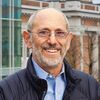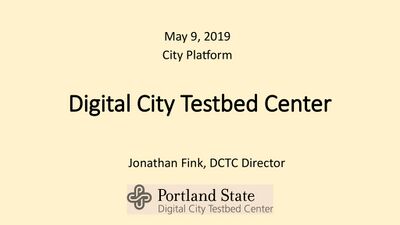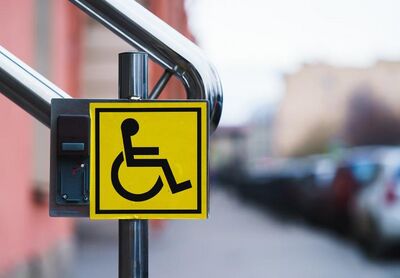Portland State University: Difference between revisions
Jump to navigation
Jump to search
No edit summary |
No edit summary |
||
| (3 intermediate revisions by the same user not shown) | |||
| Line 1: | Line 1: | ||
{{Organization | {{Organization | ||
|logo=Portland State University logo.png | |logo=Portland State University logo.png | ||
|sector= | |sector=Data, Education | ||
|industry= | |industry=Software & Services | ||
|type= | |type=Nonprofit | ||
|foundation=1946 | |foundation=1946 | ||
|founder=Stephen Edward Epler | |founder=Stephen Edward Epler | ||
| Line 10: | Line 9: | ||
|location_country=Oregon | |location_country=Oregon | ||
|area_served=Worldwide | |area_served=Worldwide | ||
|key_people=Stephen Percy | |key_people=Stephen Percy | ||
|products=Research University | |products=Research University | ||
|revenue=$361 million | |revenue=$361 million | ||
| Line 16: | Line 15: | ||
|homepage=https://www.pdx.edu/ | |homepage=https://www.pdx.edu/ | ||
|sponsorship=Sponsor | |sponsorship=Sponsor | ||
|description=The Digital City Testbed Center at Portland State University establishes a network of campuses in the Pacific Northwest where smart city technologies are tested before being deployed in communities at large. These technologies can help make cities "smarter" by improving sustainability, public health, well-being, and accessibility. | |||
|name=Portland State University | |||
|logo_size=200px | |logo_size=200px | ||
}} | }} | ||
{| class="wikitable" style="color:darkblue;background-color:lightgrey;width: 70%;height: 200px" cellpadding="20" | {| class="wikitable" style="color:darkblue;background-color:lightgrey;width: 70%;height: 200px" cellpadding="20" | ||
! colspan="4" style="background: #ffdead;" | Videos | ! colspan="4" style="background: #ffdead;" | Videos | ||
Revision as of 00:37, May 8, 2022
- Members
The Digital City Testbed Center at Portland State University establishes a network of campuses in the Pacific Northwest where smart city technologies are tested before being deployed in communities at large. These technologies can help make cities "smarter" by improving sustainability, public health, well-being, and accessibility.
Activities

|
CIVIC school HUBS | |
| NSF CIVIC grant to incubate the Federal School Infrastructure Toolkit for more resilience Community services. A pilot program with be developed with the BENSON school district in Portland, and woven into the urban/rural network of the Metro regional emergency response. | ||

|
Cascadia Innovation Corridor | |
Municipal, academic, corporate and federal smart city activities are being coordinated across Portland, Seattle and Vancouver BC through the integration of several regional initiatives:
| ||

|
Decision Theatre PSU | |
| Portland State University’s Decision Theater is designed for university researchers and regional stakeholders (i.e. government, private companies) to work on projects that “link data sets, visualization and decisions,” according to a university statement. The space is modeled after Arizona State University's Decision Theater, as well as a similar facility at the University of Chicago. | ||

|
East Portland Resilient Island Vision Plan | |
| To execute the East Portland Resilient Island Project, RIP City Planning has partnered with Portland’s Disaster Resilience and Recovery Action Group (DRRAG), an organization composed of representatives from Portland Bureaus of Development Services, Emergency Management, Environmental Services, Water, Planning and Sustainability, Transportation, and Parks & Recreation, as well as Portland State University’s Institute for Sustainable Solutions. | ||

|
Portland Electric Avenue | |
| Electric Avenue officially opened at the World Trade Center Portland in 2016 and is located on the Northside of Southwest Salmon Street in downtown Portland. It offers street access charging stations to allow visitors to charge their personal electric vehicles while visiting the World Trade Center and neighboring offices. | ||

|
School Organized Locally Assisted Community Emergency‐Management | |
| The School Organized Locally Assisted Community Emergency‐Management (SOLACE) project focused on the use of a community school as a community resilience hub for its surrounding community. Community Resilience Hubs (CRHs) can be defined as community‐serving facilities augmented to support residents and coordinate resource distribution of resources and services to the surrounding community. This project focused specifically on the use of a CRM to support community member needs before, during, or after a natural hazard event and on developing a community‐led sociotechnical infrastructure framework for adapting a public school (Buckman Elementary School) as the pilot CRH. In 2022, this project received a NSF Planning Grant. | ||

|
Lessons from a Super-Aging Society | |
| Japan is 20 to 30 years ahead of the U.S. in terms of demographic change, knowledge, and experiences in addressing an aging society. This webinar hosts one of the world-leading gerontologists, professor Hiroko Akiyama, from the University of Tokyo. | ||

|
Digital City Testbed Center | |
| The Digital City Testbed Center at Portland State University establishes a network of campuses in the Pacific Northwest where smart city technologies can be tested before being deployed in communities at large. | ||





